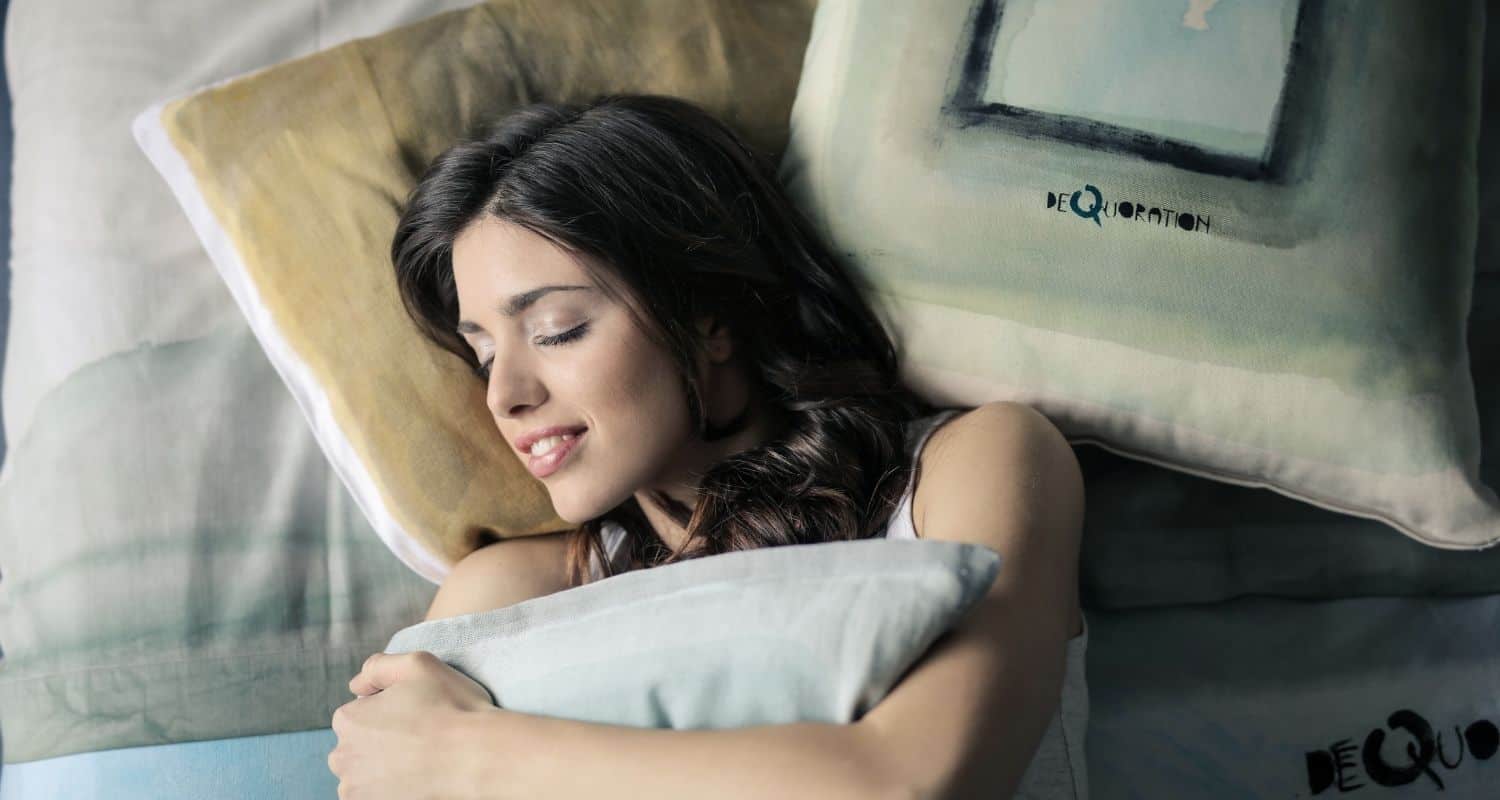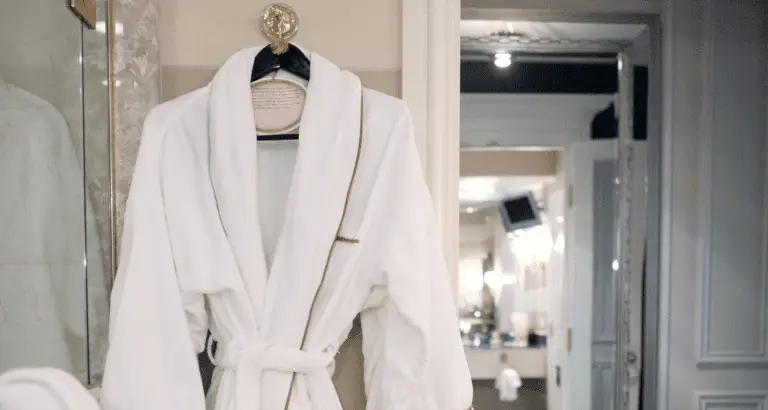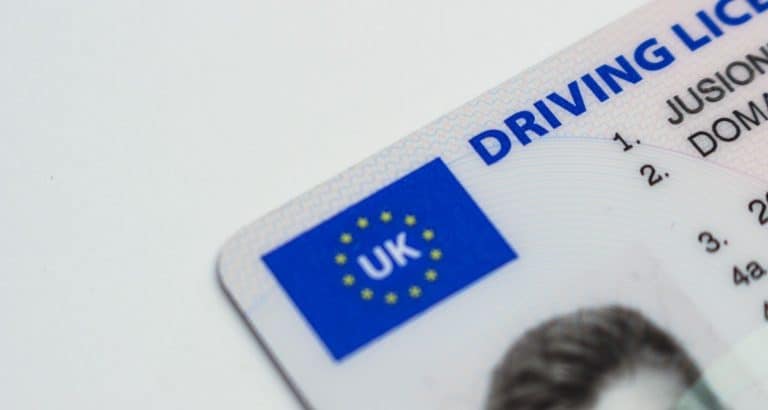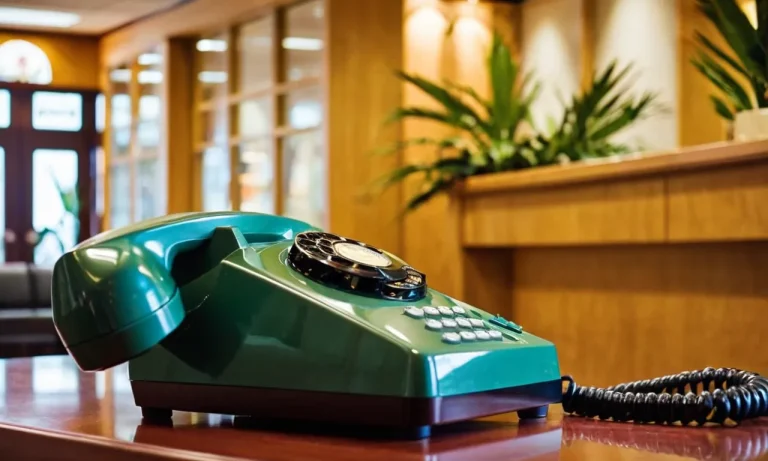Do Hotels Wash Pillows? A Comprehensive Guide
Have you ever wondered if the pillows you rest your head on during your hotel stay are truly clean and fresh? The thought of sleeping on a pillow that hasn’t been properly washed can be unsettling, especially when you’re away from the comfort of your own home.
If you’re short on time, here’s a quick answer to your question: Most hotels do wash their pillows, but the frequency and methods vary depending on the establishment’s policies and standards.
In this comprehensive article, we’ll dive deep into the world of hotel pillow cleaning practices. We’ll explore the different approaches hotels take, the industry standards, and the factors that influence their decisions.
Additionally, we’ll provide tips on what to look for and how to ensure a comfortable and hygienic sleep experience during your hotel stays.
Industry Standards for Hotel Pillow Cleaning
When you rest your head on a hotel pillow, you want to feel confident that it’s fresh and clean. Fortunately, the hospitality industry has established guidelines and regulations to ensure pillows are properly sanitized and maintained. Let’s dive into the industry standards for hotel pillow cleaning.
Regulations and Guidelines
Hotels must adhere to local and national health regulations regarding the cleaning and maintenance of linens, including pillows. For instance, the Centers for Disease Control and Prevention (CDC) provides guidelines on disinfecting surfaces and preventing the spread of illnesses in public settings.
Additionally, organizations like the American Hotel & Lodging Association (AHLA) offer best practices and standards for hotel operations, including housekeeping protocols.
Recommended Cleaning Frequencies
While specific guidelines may vary, most industry experts recommend that hotel pillows be cleaned and replaced on a regular basis. According to Hotel Management, pillows should be replaced every 12 to 18 months, or sooner if they show signs of wear or staining.
As for cleaning, pillows should be washed at least once every three months, or more frequently for high-occupancy hotels.
Some hotels even go the extra mile by washing pillows after every guest checkout. 😊 For example, the Marriott states that their pillows are “washed between every guest stay.” This attention to cleanliness can provide guests with added peace of mind and a more hygienic sleep experience.
Variations Across Hotel Chains and Ratings
While general industry standards exist, pillow cleaning practices can vary depending on the hotel chain, rating, and location. Higher-end hotels and luxury brands often have more stringent cleaning protocols and may replace pillows more frequently than budget or mid-range hotels.
Here’s a quick comparison of pillow replacement guidelines from a few major hotel chains:
| Hotel Chain | Pillow Replacement Frequency |
|---|---|
| Marriott | Every 12 months |
| Hilton | Every 18 months |
| Holiday Inn Express | Every 24 months |
It’s worth noting that these guidelines are subject to change and may vary based on specific hotel locations or brands within the chain.
So, the next time you check into a hotel, you can rest assured that industry standards and regulations are in place to ensure your pillows are clean and fresh. 👍 And if you ever have concerns, don’t hesitate to ask the hotel staff about their specific cleaning protocols – after all, a good night’s sleep is a top priority!
Common Pillow Cleaning Methods Used by Hotels
Hotel pillows take a beating from countless guests who use them night after night. As a result, hotels have implemented various cleaning methods to ensure their pillows remain fresh, hygienic, and inviting for every new guest.
The most common pillow cleaning techniques employed by hotels are machine washing, dry cleaning, and sanitizing/disinfecting techniques.
Machine Washing
One of the most popular and effective ways hotels clean their pillows is through machine washing. This method involves loading the pillows into industrial-grade washing machines designed to handle large volumes and apply the appropriate water temperature, detergent, and agitation to remove dirt, sweat, and other soils effectively.
According to a study by HospitalityNet, over 80% of hotels machine wash their pillows regularly, typically every 3-6 months.
Machine washing not only cleans the pillows but also helps maintain their shape and fluffiness. Hotels often use mild detergents specifically formulated for delicate fabrics like pillowcases and pillow fillings.
Some hotels even add a touch of fabric softener to keep the pillows soft and fresh-smelling. 🌺
Dry Cleaning
For hotels that prefer a more gentle approach or have pillows made from materials that cannot be machine washed, dry cleaning is an excellent alternative. This process uses chemical solvents instead of water to remove oils, stains, and other contaminants from the pillows.
Dry cleaning is particularly effective for down and feather pillows, as it helps maintain the loft and prevent the feathers from becoming matted or clumped.
According to a survey by Lodging Magazine, approximately 25% of hotels opt for dry cleaning their pillows, especially those in the luxury segment. The dry cleaning process is typically outsourced to professional services, ensuring the pillows receive the highest level of care and attention.
Sanitizing and Disinfecting Techniques
In addition to traditional cleaning methods, hotels have embraced various sanitizing and disinfecting techniques to ensure their pillows are free from harmful microorganisms, such as bacteria, viruses, and fungi.
These techniques are particularly crucial in the post-COVID-19 era, where guests have heightened expectations for cleanliness and hygiene.
- Ultraviolet (UV) light treatment: Some hotels use UV light to disinfect pillows, as the UV rays can effectively kill microorganisms without the use of harsh chemicals.
- Ozone treatment: Ozone, a powerful oxidizing agent, is used to sanitize pillows by breaking down and neutralizing harmful microorganisms.
- Steam cleaning: Hotels may also employ steam cleaning methods, which use high-temperature steam to kill germs and remove stubborn stains from pillows.
According to a report by the American Hotel & Lodging Association (AHLA), over 90% of hotels have implemented enhanced cleaning and disinfecting protocols, including for pillows and other bedding items, to ensure guest safety and peace of mind.
By combining these various cleaning methods, hotels strive to provide guests with the ultimate in comfort and cleanliness, ensuring a restful and hygienic sleeping experience during their stay. After all, a good night’s sleep is the cornerstone of a memorable hotel experience. 😴💤
Factors Influencing Hotel Pillow Cleaning Practices
When it comes to the cleanliness and hygiene of pillows in hotels, several factors play a crucial role in determining how often they are washed or replaced. These factors range from the hotel’s rating and brand standards to guest turnover rates and cost considerations.
Understanding these elements can provide valuable insights into the practices employed by different establishments.
Hotel Rating and Brand Standards
The rating and brand standards of a hotel significantly influence its pillow cleaning protocols. Higher-rated hotels and renowned brands typically have stringent guidelines in place to maintain a certain level of cleanliness and guest satisfaction.
These standards often dictate the frequency with which pillows should be washed or replaced, ensuring that guests enjoy a fresh and hygienic sleeping experience. According to a survey by Hotel Resort Insider, 92% of luxury hotels replace pillows at least once a year, while 78% of mid-range hotels follow a similar practice.
Guest Turnover and Occupancy Rates
The rate at which guests come and go, known as guest turnover, plays a significant role in determining how often pillows are cleaned or replaced. Hotels with higher occupancy rates and frequent guest turnover tend to have more stringent pillow cleaning practices to maintain hygiene standards.
According to a study by the American Hotel & Lodging Association, hotels with an average occupancy rate above 70% typically replace pillows every six months. On the other hand, hotels with lower occupancy rates may extend the replacement cycle to once a year or longer.
Cost and Resource Considerations
While cleanliness and guest satisfaction are paramount, hotels must also consider the associated costs and resource implications of pillow cleaning and replacement. The expenses involved in purchasing new pillows, laundering, and labor can be significant, especially for larger establishments.
As a result, many hotels strike a balance between maintaining high hygiene standards and managing operational costs. For instance, some hotels may opt for more cost-effective pillow protectors or covers, which can be easily removed and washed, extending the lifespan of the pillows themselves.
According to Statista, the average laundry cost per occupied room in the United States was $1.38 in 2021, highlighting the importance of cost-effective practices.
Ultimately, the pillow cleaning practices in hotels are influenced by a combination of factors, including brand standards, guest turnover rates, and cost considerations. By striking the right balance between these elements, hotels can ensure a comfortable and hygienic sleeping experience for their guests while managing operational expenses effectively.
Guests can take comfort in knowing that reputable hotels prioritize cleanliness and adhere to industry standards, ensuring a restful and enjoyable stay.
Signs of Clean and Well-Maintained Hotel Pillows
When you stay at a hotel, the cleanliness and comfort of the pillows can significantly impact your overall experience. After all, a good night’s sleep is crucial, and pillows play a vital role in achieving that. But how can you tell if the hotel pillows are clean and well-maintained?
Here are some signs to look out for:
Visual Inspection
- The pillows should be bright, crisp, and free of any visible stains, discoloration, or blemishes. A freshly washed and well-maintained pillow will have a vibrant, clean appearance.
- Check for any feathers or stuffing protruding from the pillow. This could indicate poor quality or excessive wear and tear.
- Inspect the pillow cases for any tears, frays, or loose threads. A high-quality hotel should ensure that all linens are in pristine condition.
Smell and Freshness
One of the most telling signs of a clean pillow is its scent. A freshly washed pillow should have a pleasant, mild aroma that doesn’t overwhelm your senses. According to a study by the National Center for Biotechnology Information, pillows can harbor a variety of microorganisms, including bacteria and fungi, which can contribute to unpleasant odors.
If you detect any musty, sour, or overpowering smells, it’s a red flag that the pillow may not have been properly cleaned or maintained.
Pillow Condition and Fluffiness
- A well-maintained pillow should be plump, fluffy, and retain its shape. When you press down on the pillow, it should bounce back quickly, indicating that the filling is in good condition.
- Lumpy, misshapen, or flat pillows are signs that they have been overused or not properly fluffed and rotated. This can lead to an uncomfortable sleeping experience.
- According to a survey by Sleep Junkie, over 60% of hotel guests rated pillow comfort as the most important factor for a good night’s sleep. Therefore, hotels should prioritize providing high-quality, well-maintained pillows to ensure guest satisfaction.
It’s important to note that reputable hotels take pillow cleanliness and maintenance seriously. Many have strict protocols in place for regular cleaning, replacement, and sanitization of pillows. However, if you encounter any signs of uncleanliness or poor maintenance, don’t hesitate to request new pillows or voice your concerns to the hotel staff.
After all, a good night’s sleep is a key component of a enjoyable hotel stay. 😴🛏️
Tips for Ensuring a Comfortable and Hygienic Sleep Experience
Requesting Fresh Pillows
One of the simplest ways to ensure a clean and comfortable sleep experience in a hotel is to request fresh pillows. Most reputable hotels have a policy of replacing pillows regularly, but don’t hesitate to ask for new ones if you have any doubts.
According to a survey by TripAdvisor, 78% of travelers prefer to request fresh pillows during their hotel stay. This is a reasonable request, and most hotels will happily oblige.
When requesting fresh pillows, you can politely ask the front desk or housekeeping staff. Some hotels may even have a pillow menu, allowing you to choose your preferred type of pillow, such as down, memory foam, or hypoallergenic.
😊 Don’t be shy about asking for what you need to sleep comfortably and hygienically.
Bringing Your Own Pillow
If you have a favorite pillow or have concerns about hotel pillow cleanliness, consider bringing your own pillow from home. This can provide peace of mind and ensure a familiar sleeping environment. According to a survey by Sleep.org, nearly 40% of travelers bring their own pillows when staying in hotels. It’s a common practice, and most hotels will accommodate your personal pillow without any issues.
When traveling with your own pillow, be sure to pack it in a protective case or plastic bag to keep it clean during your journey. You can also request a fresh pillowcase from the hotel to cover your personal pillow.
This way, you can enjoy the comfort of your own pillow while still maintaining a level of hygiene.
Checking for Certifications and Ratings
To ensure a comfortable and hygienic sleep experience, consider checking for certifications and ratings related to hotel cleanliness and hygiene standards. Look for hotels that have received certifications from organizations like the American Hotel & Lodging Association (AHLA) or Green Key Global, which evaluate hotels based on their environmental and sustainability practices, including cleanliness.
Additionally, review sites like TripAdvisor and Booking.com can provide valuable insights from other travelers regarding a hotel’s cleanliness and overall guest experience. According to a study by TrustYou, hotels with higher cleanliness ratings tend to have higher overall guest satisfaction scores. By considering certifications and ratings, you can make an informed decision and increase your chances of a comfortable and hygienic stay.
Remember, open communication with hotel staff and being proactive about your preferences can go a long way in ensuring a pleasant and hygienic sleep experience during your hotel stay. Don’t hesitate to voice your concerns or requests – most hotels prioritize guest satisfaction and will do their best to accommodate your needs.
👍
Conclusion
As we’ve explored in this comprehensive guide, the question of whether hotels wash pillows is not a straightforward one. While most reputable establishments have policies and procedures in place to ensure clean and hygienic pillows, the frequency and methods can vary significantly.
By understanding the industry standards, common cleaning practices, and factors influencing hotel pillow cleaning, you can make more informed decisions when it comes to your sleep experience during hotel stays.
Remember, it’s always a good idea to inspect the pillows, request fresh ones if needed, and consider bringing your own pillow for added peace of mind.
Ultimately, a good night’s sleep is crucial for a comfortable and enjoyable hotel stay, and clean, well-maintained pillows play a vital role in achieving that. By being an informed and proactive guest, you can ensure a restful and hygienic sleep experience, no matter where your travels take you.






